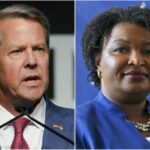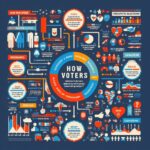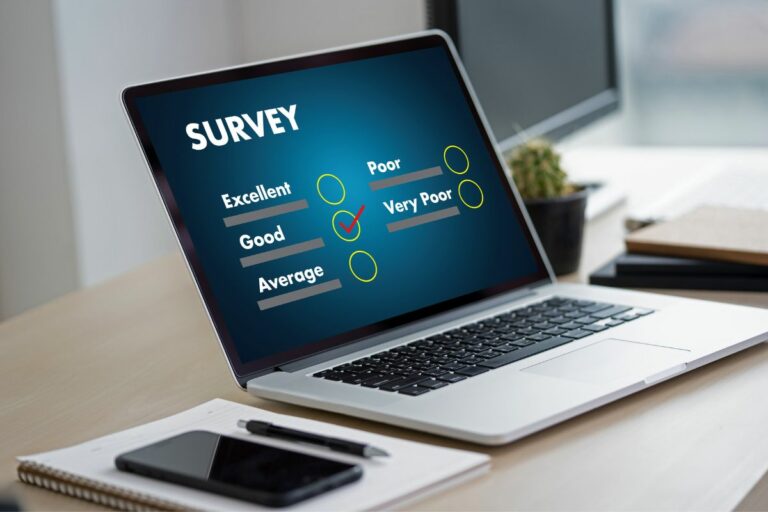University of Southern California Polls: A Deep Dive into West Coast Politics
Understanding the Importance of Polling in Politics
Public opinion polls play a crucial role in the political landscape, providing valuable insights into voter preferences, beliefs, and attitudes. By gauging the pulse of the electorate, polling helps politicians, policymakers, and analysts understand the mood of the population and tailor their strategies accordingly. Polling data serves as a barometer of public sentiment, guiding decision-making processes and shaping political discourse.
In a democratic society, understanding the importance of polling in politics cannot be overstated. Polls help to track trends, predict election outcomes, and measure the impact of various policies on the public. By capturing the diverse voices and opinions of the electorate, polling enhances transparency and accountability in governance, fostering a more informed and engaged citizenry. Thus, the significance of polling in shaping political narratives and fostering democracy cannot be denied.
USC’s Role in Shaping Political Discourse on the West Coast
USC plays a significant role in shaping political discourse on the West Coast through its robust polling initiatives and research efforts. By conducting regular polls that gauge public opinion on key political issues, USC provides valuable insights into the thoughts and preferences of voters in the region. These polls not only inform the public and policymakers but also serve as a barometer for the political climate in states like California, Oregon, and Washington.
Moreover, USC’s reputation as a leading research institution lends credibility to its polling data, making it a trusted source for media outlets, politicians, and the general public. The university’s polls have the power to influence political conversations, drive policy debates, and shape election strategies in the region. Through its commitment to objective and data-driven analysis, USC continues to play a vital role in shaping the political landscape on the West Coast.
Analyzing Trends in Public Opinion Through USC Polls
USC Polls serve as a valuable tool in analyzing trends in public opinion, providing insights into the shifting dynamics of political discourse on the West Coast. By collecting and interpreting data on various social and political issues, these polls offer a comprehensive view of the prevailing sentiments among the electorate. Through meticulous analysis of survey results, researchers can identify emerging patterns and fluctuations in public preferences, shedding light on the nuanced complexities of voter attitudes.
Moreover, USC Polls play a crucial role in gauging the pulse of the community and forecasting potential outcomes of key political events. By tracking sentiment trends over time, these polls enable policymakers and candidates to tailor their strategies in alignment with public sentiment, thus influencing decision-making processes. The data-driven approach of USC Polls empowers stakeholders to make informed choices based on a deep understanding of the prevailing public opinion landscape, ultimately shaping the trajectory of political discourse and policy formulation.
The Impact of USC Polls on Election Outcomes
USC polls play a significant role in influencing election outcomes, providing valuable insights into voter preferences and sentiments leading up to the elections. By accurately capturing public opinion through scientific polling methods, USC polls offer a glimpse into the potential electoral results, helping campaigns strategize and adapt their messaging according to the prevailing sentiments among the electorate. This proactive approach to gauging voter attitudes enables political candidates to fine-tune their campaign strategies, tailor their messages, and prioritize issues that resonate with the public, ultimately impacting the final election results.
Moreover, the credibility and reliability of USC polls as a reputable source of data on public opinion contribute to their influence on election outcomes. Candidates, political parties, and media outlets often reference USC polls to understand the shifting dynamics of voter preferences and the competitive landscape of electoral races. The widespread dissemination and utilization of USC poll findings in the political sphere not only shape the narrative surrounding election campaigns but also serve as a barometer for assessing candidate performance and predicting potential winners, thereby influencing the decisions and voting behaviors of the electorate.
USC Polls vs. Other Polling Institutions: A Comparative Analysis
When comparing USC polls to other polling institutions, it becomes evident that USC’s unique approach sets it apart in the field of political polling. USC polls are known for their focus on gathering data from diverse and representative samples, ensuring the accuracy and reliability of the results. In contrast, some other polling institutions may rely on more homogenous samples that could potentially introduce biases into their findings.
Furthermore, USC polls have gained a reputation for their innovative methodologies and cutting-edge techniques in data collection and analysis. The use of advanced statistical models and technology allows USC to capture subtle shifts in public opinion that other polling institutions might overlook. This attention to detail and commitment to excellence have solidified USC’s position as a leading authority in political polling, distinguishing it from its competitors in the industry.
The Methodology Behind USC Polls: How Data is Collected and Analyzed
USC Polls employ a meticulous methodology in collecting and analyzing data to provide insights into public opinion on various political issues. The data collection process typically involves a combination of telephone surveys, online questionnaires, and in-person interviews conducted by trained researchers. USC Polls aim to represent a diverse range of demographics, ensuring a comprehensive understanding of the viewpoints held by different segments of the population.
Once the data is gathered, USC Polls employ advanced statistical analysis techniques to identify trends, correlations, and patterns within the responses. Through the use of sophisticated software and methodologies, USC researchers are able to draw meaningful conclusions and make accurate predictions based on the collected data. The transparency and rigor of the methodology behind USC Polls contribute to their reputation as a trusted source of information on public opinion in the realm of politics and policymaking.
Key Findings from Recent USC Polls on West Coast Politics
USC polls on West Coast politics have provided valuable insights into the public opinion landscape in the region. One key finding from recent polls is the strong support for environmental protection measures among voters, with a majority expressing concern about climate change and endorsing policies aimed at addressing it. These findings indicate a growing awareness and prioritization of environmental issues among the electorate.
Another noteworthy discovery from USC polls is the shifting attitudes towards immigration policies on the West Coast. Recent data suggests a more favorable view towards comprehensive immigration reform, with a significant portion of respondents expressing support for pathways to citizenship for undocumented immigrants. This trend reflects the changing demographics and values of the region, highlighting the importance of understanding evolving public sentiment in shaping political strategies and decisions.
The Influence of USC Polls on Policy Making and Political Campaigns
USC polls play a crucial role in shaping policy making and political campaigns. The insights gathered from these polls provide valuable information for policymakers and candidates to understand public opinion on various issues. By analyzing the data collected through USC polls, decision-makers can tailor their policies and campaign strategies to better align with the preferences of the electorate.
Moreover, USC polls have the power to influence public discourse and perceptions surrounding key policy issues. When the results of these polls are released to the public, they can shape the narrative around certain political topics and spark conversations among voters and policymakers alike. The influence of USC polls extends beyond just providing data – it can drive discussions, shape agendas, and ultimately impact the direction of policy making and political campaigns.
The Future of USC Polls in Shaping Public Discourse
What lies ahead for USC Polls in influencing public discourse remains a topic of keen interest for political analysts and policymakers. As technology continues to advance and shape the way information is disseminated, USC Polls are likely to adapt and evolve in their methodologies to capture an accurate reflection of public sentiment. With the ever-changing landscape of political communication, USC’s role in shaping public discourse through polls is expected to continue to grow in significance.
The future of USC Polls also holds the promise of delving deeper into niche topics and demographic subsets to provide a more nuanced understanding of public opinion. By incorporating more sophisticated analytical tools and predictive modeling techniques, USC Polls may be able to offer insights that extend beyond mere numbers, providing a richer context for interpreting the data. As USC Polls continue to refine their methodologies and expand their scope, they are poised to play an even more influential role in influencing public discourse and shaping political narratives.
Exploring the Relationship Between USC Polls and Voter Behavior
USC polls play a crucial role in understanding voter behavior and preferences, providing valuable insights into the dynamics of political campaigns. By gauging public opinion through rigorous data collection methods, USC polls offer a snapshot of voter sentiment that can inform political strategies and messaging. This deep dive into voter behavior allows candidates and policymakers to tailor their approaches to resonate with the electorate and adapt their platforms accordingly.
Moreover, the relationship between USC polls and voter behavior extends beyond the realm of elections. The data gathered from these polls can shape policy decisions by highlighting issues that are important to the public. As voters become more informed about the prevailing sentiments in their communities, they are empowered to advocate for policies that align with their values and priorities. USC polls serve as a bridge between the electorate and the decision-makers, fostering a more responsive and representative political landscape.
- University of Massachusetts Amherst Polls: Analyzing Voter Behavior in Massachusetts - January 5, 2025
- Polling Insights from University of Massachusetts Lowell: A Close Look at Voter Shifts - January 5, 2025
- University of New Hampshire Polls: Analyzing Key Presidential Primary Data - January 5, 2025







